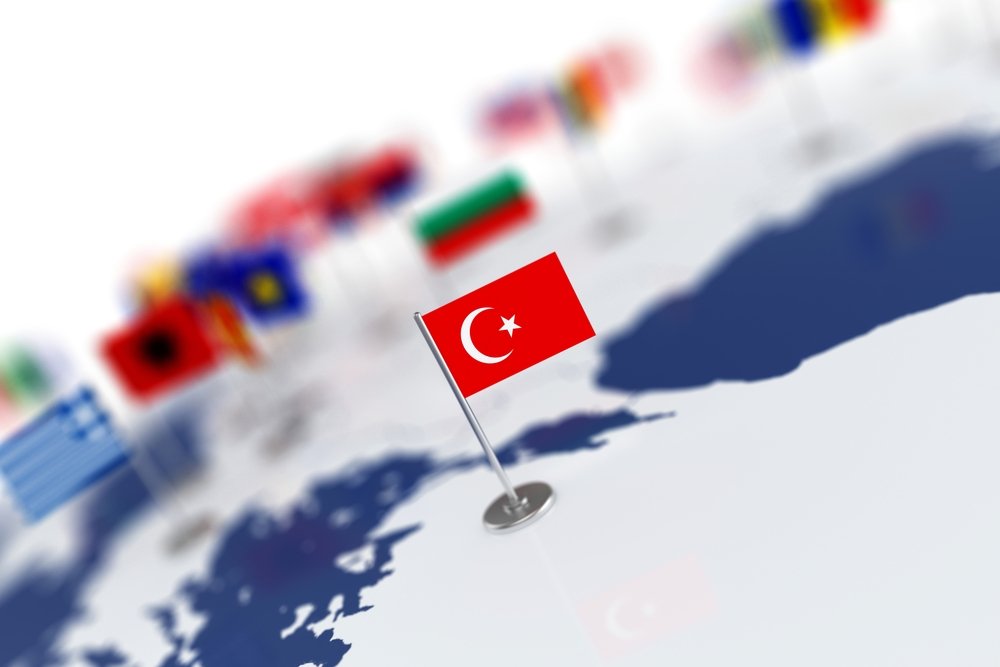The Rise of Türkiye’s Neo-Ottoman Vision: A Journey to Dominance
In the early 2000s, I remember how Recep Tayyip Erdoğan’s Islamist-rooted speeches mesmerized the public in Türkiye. He spoke not only to the conservative base but also resonated with broader segments of society that were fatigued by political instability, economic crises, and corrupt elites. During those years, democracy, human rights, and European Union (EU) membership negotiations dominated Türkiye’s foreign and domestic agendas. There was genuine hope for liberal reforms and a deeper integration with the West.
However, over the next two decades, that dream would be overshadowed by a far more ambitious vision: a neo-Ottomanist strategy aiming to project Türkiye’s influence across former Ottoman territories. While critics argue this shift was opportunistic, it was in fact ideological and long in the making. It was very clear when the behaviors of main political actors in the country, as well as Turkish foreign policy goals.
Ahmet Davutoğlu, former Foreign Minister and Prime Minister, was a central architect of this new foreign policy doctrine. His books, particularly Strategic Depth, and his passionate speeches were the heralds of the neo-Ottoman dream. His goal “to pray at a mosque in Damascus” during the height of the Syrian conflict around 2011–2012 wasn’t merely symbolic. It represented a deeper ideological aspiration: to return Türkiye to its former regional grandeur by actively shaping events in the Middle East and beyond. Ironically, this goal, once dismissed as overreach, seems closer to realization today, though not in the way he had imagined.
The Arab Spring was a pivotal moment. While Western governments hesitated or adopted cautious stances, Türkiye took bold steps. It embraced the uprisings as a historical opportunity to reassert leadership. From Tunisia to Egypt, and most consequentially in Syria, Türkiye sought to support political movements aligned with its ideological vision. The region’s instability offered a vacuum, and Ankara stepped in to fill it.
However, this bold strategy came at a cost. Relations with traditional allies, particularly in the West, grew tense. The EU accession process stalled. Trust with the United States fluctuated, especially over support for Kurdish militias (YPG which has been considered a dimension of PKK terrorist organization in Türkiye) in Syria. Nevertheless, Türkiye continued its course, leveraging its military, humanitarian, and diplomatic tools to establish facts on the ground.
Now, over a decade later, we are witnessing another pivotal transformation: the shift in Türkiye’s approach to the PKK (Kurdistan Workers’ Party). For over 40 years, the PKK operated as a terrorist group, seeking Kurdish recognition and a nation-state across Türkiye, Iran, Iraq, and Syria. Repeated Turkish governments tried to resolve the conflict, including the late Turgut Özal and Erdoğan himself during the “Çözüm Süreci” (Peace Process). Yet the violence persisted, fueled further by the chaos in Syria and Iraq after U.S. interventions, which inadvertently empowered PKK-affiliated groups like the YPG in Syria.
But now, for the first time in years, a different path may be unfolding. Abdullah Öcalan, the imprisoned PKK leader, has reportedly urged the organization to lay down arms and shift toward a political solution. He acknowledged that the modern Turkish state provides rights to Kurdish citizens and that pursuing a separate nation-state was no longer viable. Ironically, this potential breakthrough is being supported or at least tolerated by Türkiye’s nationalist MHP (Nationalist Movement Party), an official ally of Erdoğan’s ruling coalition, the Cumhur İttifakı.
Such a strategic shift holds both promise and risk. It could finally neutralize one of the most enduring threats to Türkiye’s internal stability and unlock new possibilities for regional diplomacy and influence. If the PKK transforms into a political actor, it can change the dynamics not only in Türkiye but across northern Syria and Iraq, where power vacuums remain.
The international climate seems to favor this process as well. The U.S. Ambassador to Türkiye recently expressed support for these developments, indicating alignment with broader Western interests. Yet this is not just a domestic or security issue. The implications stretch across the broader neo-Ottoman vision. If Ankara successfully integrates the Kurdish question into its political system while expanding its regional presence, it solidifies its role as the hegemon of the Middle East. From drone diplomacy in Libya to military posts in Syria and Iraq, to soft power in the Balkans and Africa, Türkiye is executing a multi-dimensional strategy.
The coming years will be critical. Türkiye must manage nationalist sentiments, address legitimate Kurdish grievances, and avoid the temptation of unilateralism. Success will require diplomacy, patience, and an inclusive political approach.
Still, the direction is clear. From the hopeful EU-focused early 2000s to the assertive neo-Ottoman ambitions of today, Türkiye has charted a bold course. Whether this vision brings long-term stability or further friction remains to be seen. But one thing is certain. Türkiye is no longer a passive actor. It is a country determined to shape its destiny, regionally and globally.
